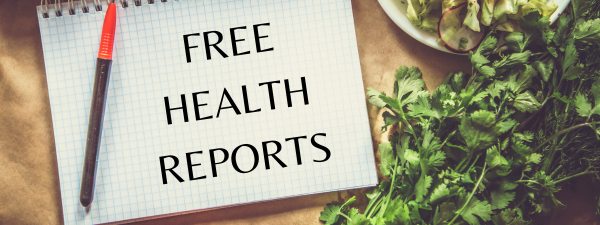Ginger is one spice that I recommend keeping on hand in your kitchen at all times. Not only is it a wonderful addition to your cooking (especially paired with garlic) but it also has enough medicinal properties to fill several books.
Fresh ginger root keeps well in your freezer. If you find yourself nauseous or with an upset stomach, mince up a small amount (about the size of your fingernail) and swallow it. You’ll be amazed at the relief it provides. Yet this is only the beginning…
Therapeutic Benefits of Ginger Noted for Thousands of Years
The medicinal uses of ginger have been known for at least 2,000 years in cultures all around the world. Although it originated in Asia, ginger is valued in India, the Middle East, Africa, and the Caribbean, among other regions.
The most commonly used medicinal part of the plant is the rhizome, the root-like stem that grows underground. It’s a rich source of antioxidants including gingerols, shogaols, zingerones, and more. Ginger actually has broad-spectrum antibacterial, antiviral, antioxidant, and anti-parasitic properties, to name just several of its more than 40 pharmacological actions.1
Amazing Ginger Sweat Bath
This might sound odd but soaking in ginger has some amazing effects on the body from detox to anti-inflammatory properties ginger baths are good on a regular basis or when you have a flu or cold. But beware you will sweat profusely.
Ginger Detox Bath
Ingredients
1 c. Epsom salts
1 c. Baking Soda
3 Tbsp. ground ginger
1 Tbsp. freshly ground ginger use a muslin tea bag or tea ball (optional)
A few drops of Ginger essential oil or other scent preference (optional)
Method:
1. Fill the tub with hot water.
2. Add Epsom Salts, ginger, baking soda and essential oils
3. Soak for up to 30 minutes
Please remember that the ginger bath will make you sweat profusely for at least an hour afterwards, so wear a bathrobe or sweat clothes. Make sure you drink plenty of water after the bath.
If you have sensitive skin or are allergy-prone, test ginger on your skin for irritation before the bath.
Ginger Has Anti-Inflammatory Properties That May Rival Non-Steroidal Anti-Inflammatory Drugs (NSAIDs)
For instance, ginger (like many natural plant compounds) is anti-inflammatory, which makes it a valuable tool for pain relief. In 2001, research showed that ginger oil helped reduce knee pain in people with osteoarthritis.2
In 2013, a study also found that women athletes taking three grams of ginger or cinnamon daily (that’s less than one teaspoon) had a significant decrease in muscle soreness.3 Ginger has even been found to be as effective as ibuprofen in relieving pain from menstrual cramps in women.4
The pain-relieving potential of ginger appears to be far-reaching. Along with help for muscle and joint pain, ginger has been found to reduce the severity of migraine headaches as well as the migraine medication Sumatriptan – with fewer side effects.5
Another recent study, which was presented at the American Thoracic Society International Conference, found that adding ginger compounds to isoproterenol, a type of asthma medication called a beta-agonist, enhanced its bronchodilating effects. Because ginger enhances bronchodilation, it may provide a much safer alternative, or at least complement, to current asthma medications on the market.
Ginger Shows Promise as a Cancer and Diabetes Fighter
Ginger’s anti-inflammatory properties no doubt make it beneficial for many chronic inflammatory diseases including cancer. Indeed, research published in the British Journal of Nutrition6 has demonstrated the in vitro and in vivo anticancer activity of ginger, suggesting it may be effective in the management of prostate cancer.
Other research shows it has anti-tumor activity that may help defeat difficult-to-treat types of cancer, including lung, ovarian, colon, breast, skin, and pancreatic.7 Furthermore, because ginger helps prevent the toxic effects of many substances (including cancer drugs), it may be useful to take in addition to conventional cancer treatments.8
As for diabetes, ginger appears to be useful both preventively and therapeutically via effects on insulin release and action, and improved carbohydrate and lipid metabolism.
According to one comprehensive review, a clinical trial that was performed found that after consuming three grams of dry ginger powder for 30 days, diabetic participants had a significant reduction in blood glucose, triglyceride, total cholesterol, and LDL cholesterol.9 It’s thought that ginger has a positive effect on diabetes because it:
Inhibits enzymes in carbohydrate metabolism
Increases insulin release and sensitivity
Improves lipid profiles
Ginger also has also been established to have a protective effect against diabetes complications, including offering protection to the diabetic’s liver, kidneys, central nervous system, and eyes.
The Power of Ginger for Nausea, Motion Sickness, and Digestive Upset
No article about ginger would be complete without highlighting its wonderful use for digestive upsets. In my book, it is one of the best natural remedies if you struggle with motion sickness or nausea (from pregnancy or chemotherapy, for example), ginger should be a staple in your diet. Research shows:
Taking one gram of ginger daily may help reduce nausea and vomiting in pregnant women, and ginger has been shown to work better than a placebo in relieving morning sickness10
Daily ginger supplementation reduces the severity of chemotherapy-induced nausea11
Ginger may help reduce vomiting and other symptoms of motion sickness12
Ginger is also a must-have if you struggle with indigestion, and it does more than simply relieve pain. Ginger helps to stimulate the emptying of your stomach without any negative effects,13 and it’s an antispasmodic agent, which may explain its beneficial effects on your intestinal tract. Additionally, ginger inhibits H. pylori, which may help prevent ulcers, while also protecting gastric mucosa.14
Caution: If you take anti-coagulants, consult your doctor before using ginger.
By Dr Joseph Mercola / Physician and author
(Source: complete-health-and-happiness.com; April 4, 2015; http://tinyurl.com/kqa4ye3)




